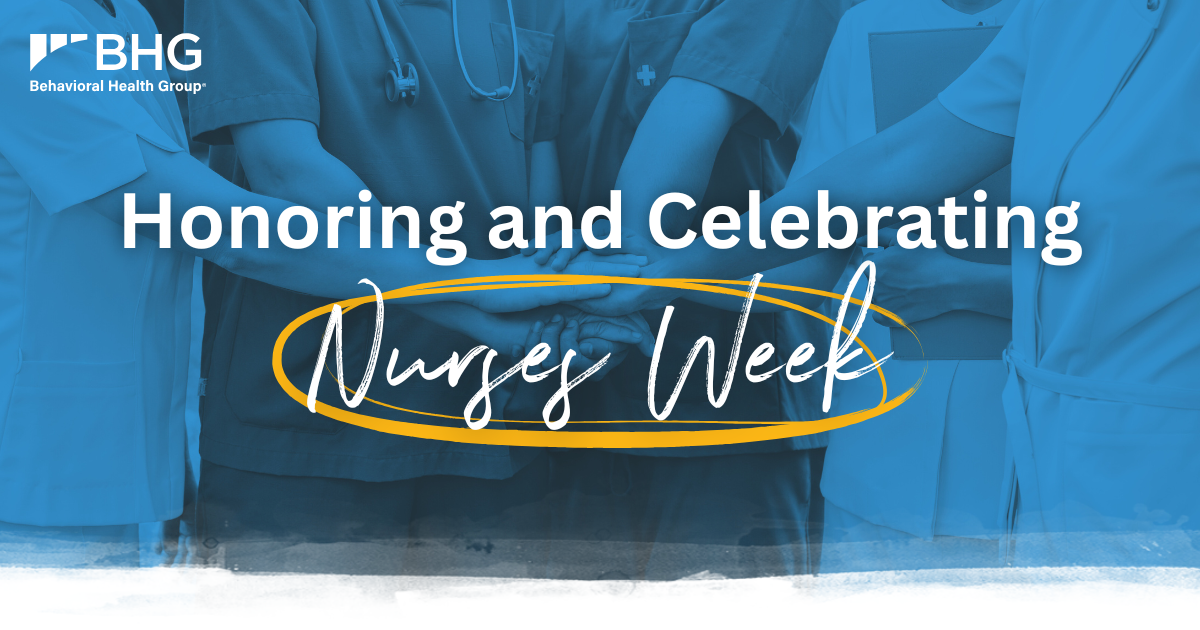
Nurses Week is a special time each year during the month of May when communities across the country come together to celebrate and honor nurses. This weeklong event recognizes the important role nurses play in every corner of healthcare – from hospitals and clinics to community centers and specialized fields like addiction medicine and behavioral health. These skilled professionals are often the first to offer hope and healing, guiding patients and families through some of their most challenging moments. To truly appreciate why Nurses Week is so important, it’s helpful to first understand its origins and the impact nurses have in shaping healthcare.
What is Nurses Week?
Nurses Week is an annual celebration that recognizes the contributions nurses make in healthcare and the well-being of individuals and communities. It serves as an opportunity to acknowledge the compassion, expertise and resilience that define the nursing profession. While Nurses Week is widely recognized today, its origins are deeply rooted in the history of modern nursing and the lifelong efforts of one of healthcare’s most influential pioneers.

The History of Nurses Week
The idea of honoring nurses began with Florence Nightingale, who is the founder of modern nursing. Known for her groundbreaking work in the Crimea war in 1854, Nightingale’s commitment to improving healthcare standards set the foundation for the nursing profession as we know it today.
The movement to establish an official Nurses Week in the United States gained momentum in the mid-20th century, with numerous efforts by nursing organizations and government leaders. In 1982, President Ronald Reagan signed a proclamation officially recognizing May 6 as National Recognition Day for Nurses, and the American Nurses Association (ANA) later expanded the recognition to a full week of celebration in 1990. Today, Nurses Week is observed not only nationally but also internationally, serving as a reminder of the vital role nurses play in delivering life-saving care.
When is Nurses Week?
Nurses Week is observed each year from May 6 to May 12. These dates were chosen to honor Nightingale’s birthday, which falls on May 12.
In addition to the full week of recognition, several specific days are also observed throughout Nurses Week, each highlighting different areas of the nursing profession:
- May 6 – National Nurses Day: Also known as National RN Recognition Day, this marks the official start of Nurses Week in the United States.
- May 8 – National Student Nurses Day: A day to honor student nurses and the future of the profession.
- Wednesday of Nurses Week – National School Nurse Day: Recognizes school nurses for their critical role in supporting student health and well-being.
Together, these observances offer opportunities to recognize nurses in all specialties and stages of their careers – from those just entering the field to experienced professionals making a difference in communities every day.

Nurses Week Theme
Every year, the ANA selects a theme for Nurses Week that captures the spirit, strength and evolving role of nurses in today’s healthcare system. But it's more than just a slogan – the theme helps guide how we honor and amplify the contribution of nurses across a wide range of care settings.
Nurses Week 2025
The ANA has announced that the 2025 theme for Nurses Week is “The Power of Nurses” - a message that celebrates the strength, influence and resilience of nurses in all areas of care. Nurses are not only caregivers, but educators, leaders and advocates who help shape the future of healthcare.
In areas like addiction medicine and behavioral health, the theme takes on an even deeper meaning. Nurses in these settings play a critical role in supporting individuals with substance use disorder (SUD) through life-altering moments, serving as both a calming presence and a powerful force for advocacy, helping patients navigate recovery, trauma and stigma with empathy and skill.
To stay updated on future themes and access resources, visit the ANA’s official website or follow them on social media.
Why Nurses Week Matters
Nurses Week is more than a celebration – it's a call to recognize the incredible impact nurses have in healthcare and to advocate for the support they need to continue their work. From addiction medicine to behavioral health and beyond, nurses are critical in helping individuals heal, recover and rebuild their lives.
However, this work is not without its challenges. A 2018 study found of more than 3.9 million U.S. registered nurses who left their jobs, 31.5% of them cited burnout as the main reason for their departure – with hospital settings and longer work hours increasing the risk. For nurses working in emotionally demanding areas like behavioral health and SUD treatment, the emotional toll can be even greater.
Recognizing the contributions of nurses during Nurses Week affirms their role in healthcare, highlighting the need for systemic change and reminds us that caring for nurses is important to caring for patients.

Thank You, Nurses
Whether working in hospitals, community clinics, schools or specialized fields like addiction recovery, nurses make a difference – often in powerful ways that change lives. During Nurses Week and every week, we say thank you. Thank you for the long hours, the difficult conversations, the advocacy and the steady presence during moments of crisis. We appreciate you helping patients feel seen, safe and supported – especially when they’re at their most vulnerable.
If you know a nurse, take a moment to recognize their impact. Even a simple “thank you” can go a long way in reminding them they’re valued.
A Word from Julie Koenig, Chief Operating Officer and Fellow Nurse
Nursing opened doors I never imagined—from direct care to shaping the future of healthcare as a leader. What has never changed is the heart of the work:
THE PATIENT ALWAYS COMES FIRST.

